A fresh irritant at CBSO concerts
OrchestrasFrom Norman Stinchcombe’s review of an excellent concert of English music, marred only by…
To whoever is responsible: please, please (please x 10²) stop these meandering, tiresome, tedious Kazuki Yamada addresses to the audience. This one involved him interviewing CBSO player Amy Thomas. Yamada: “Do you like English music?” Thomas: “Yes”. Yamada (I translate his gestures into words) “What is the orchestra’s best section?” Thomas: “The violas.” She’s a viola player. Those were the highlights.
Full review here.

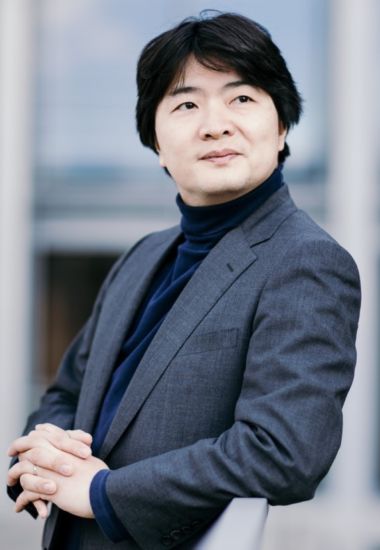
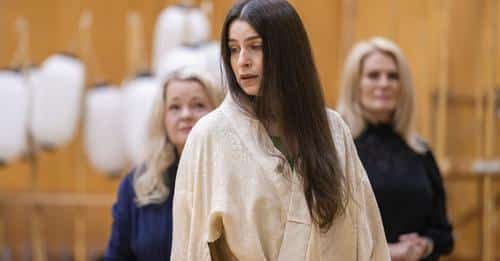
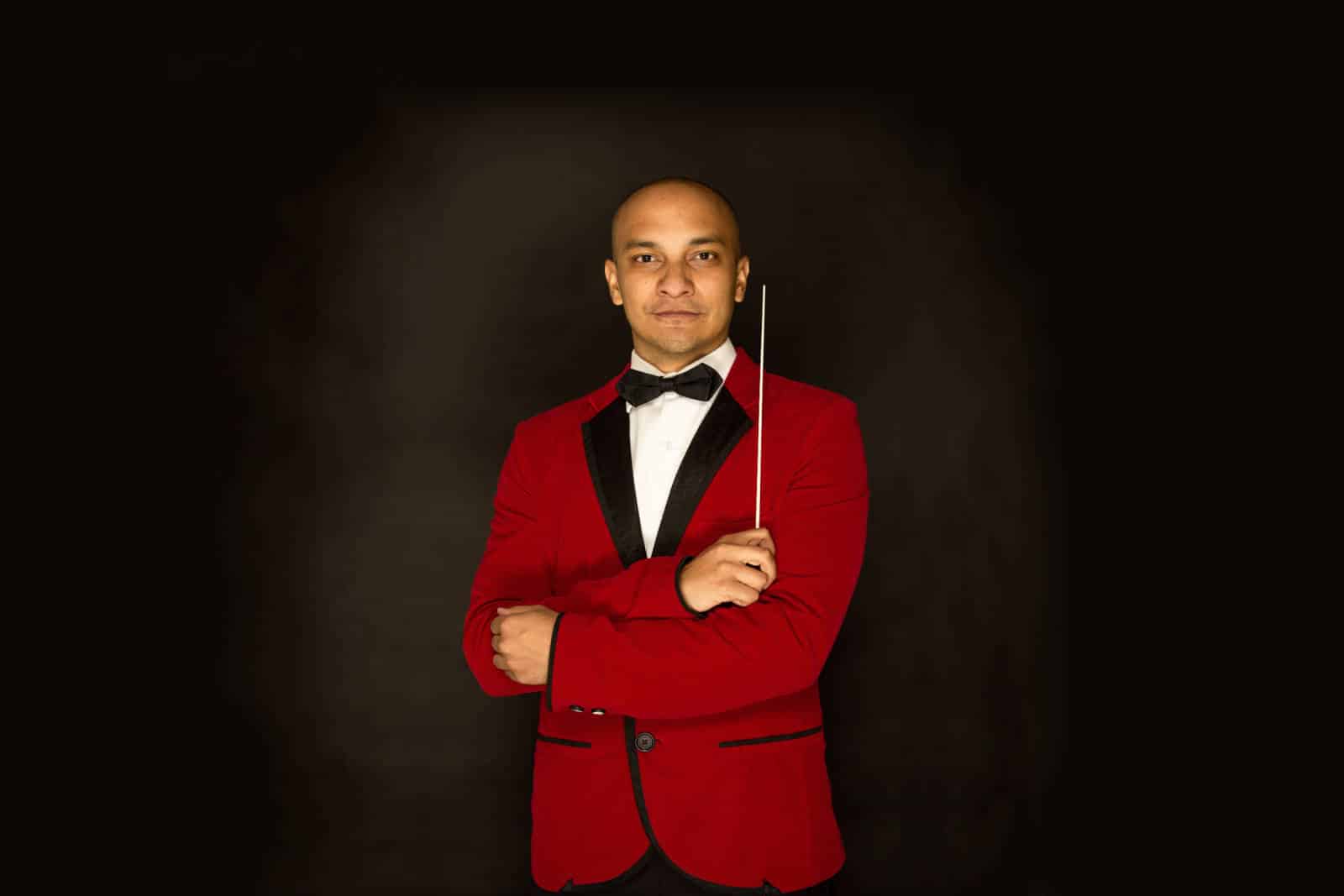
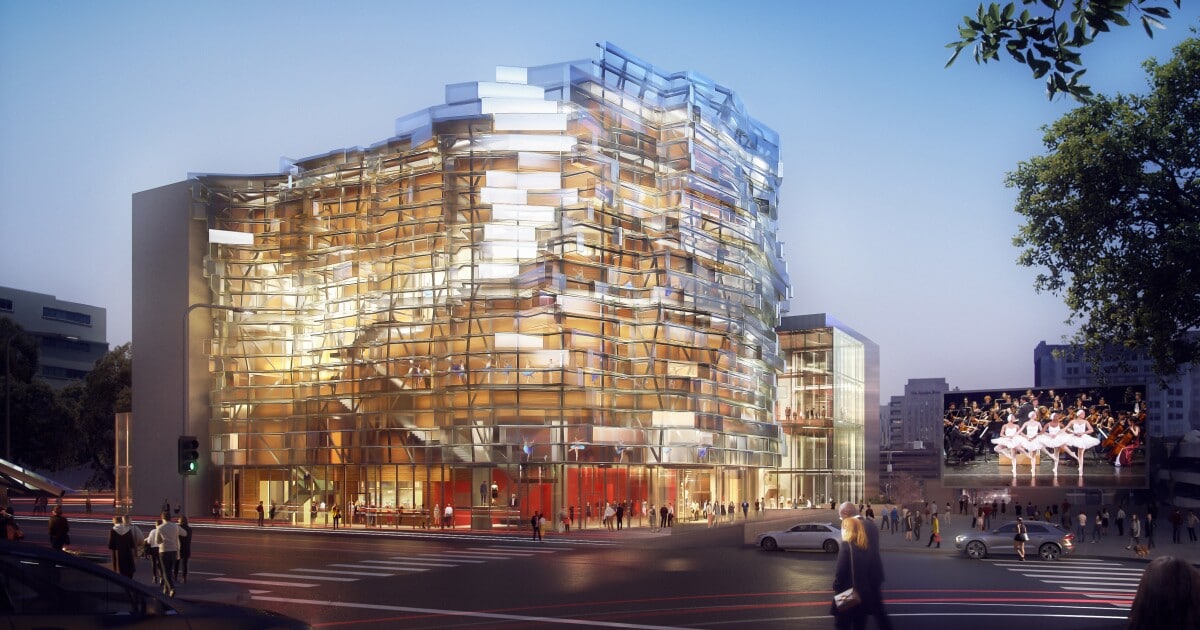
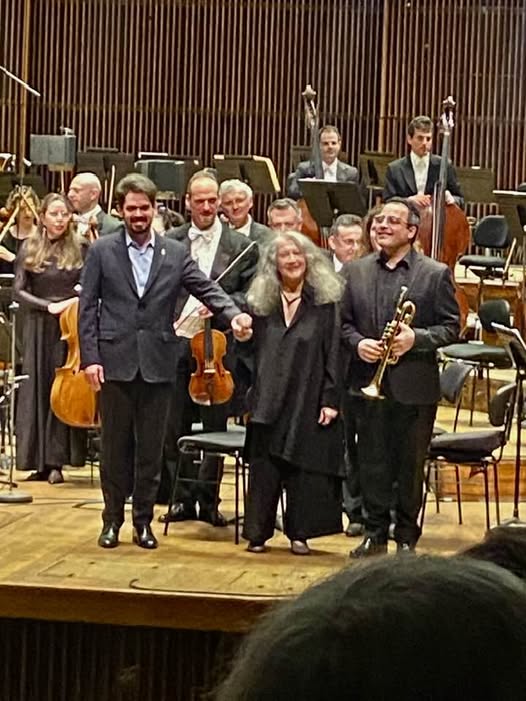
Conductors should not speak.
Why not ?
If they had anything important to say, they might be in different walks of life. Their music-making should do the talking on their behalf.
That said, there are some (Furtwangler, par example) whose writings are worth reading in parallel with their musicality, but he is the exception rather than the rule.
Some conductors–Andrew Manze, for instance–are very good at saying things that might illuminate a work for someone coming to it for the first time. What’s wrong with that?
It depends on the quality of such a speech.
I have heard some brilliant ones by Mark Elder that appeal to all in the hall.
Kazuki’s are awful and, to be honest, painful to watch.
Lorenzo Viotti now gives introductions to his concerts that are patronising and undermine the music (‘this makes me emotional’).
I have never been to a Mark Elder concert in which he didn’t feel obliged to give a brief, or not so brief, introduction to one of the pieces. Usually quite unnecessarily.
That’s just silly. I have heard brilliant things on the podium from Rattle, Barenboim and lots of others. They are great musicians – let’s hear them.
I have lots of rather smug and self-regarding things from both. I would rather they just shut-up.
I went to a concert at the De Montfort Hall in Leicester on Sunday, the conductor gave a brief introduction to each piece. I found this very useful and entertaining. This should be done more often it makes for a good relationship between the conductor and audience, much better than the usual entrance, bowing and scraping then just getting on with it!
Yes, Jonathan Lo gave an excellent example of this on Sunday with the Bardi Symphony. Many people enjoy the introductions as a way in to understanding the work, and you’re right, it creates the relationship between conductor and audience.
Oy
I have to say I think this is rather mean-spirited and unhelpful (though the review itself closely reflects my own experience of the occasion). The decision has clearly been made to give some kind of spoken introduction to each concert, especially if Yamada is present. And you may not get much illumination from him (and too be honest I think he could try and prepare the speeches more), but you do get oodles of charm, some entertainment and a sense of a genuinely friendly atmosphere. I could easily do without such ‘sideshows’ myself, but they are plainly greatly enjoyed by many in the audience. Not least, I suspect, less dyed-in-the-wool veterans than I am. Of all the innovations tried at Symphony Hall in the last year, I would say this is the most promising and least offensive. It is certainly not worth risking re-opening old wounds between the CEO and her public over such a thing.
I too was there last night, and agree with all that Cornishman says. I take a lot of “first-timers” to the CBSO and they tend to like the chats – tho I agree that last night’s was especially banal ( – who chooses the interviewee? I expect this is all about inclusivity… And no, she really was not good or eloquent). These chats seem to be an innovation of the CEO (I may be wrong): usually they are quite fun, often informative, and certainly the least offensive thing she has done. The audiences like Kazuki (rightly) a great deal, and his charm usually carries things – if not his command of English. Incidentally, the concert was brilliant: my first-timer friend described it as “an epiphany – I am eager to return”. And Kazuki more than makes up for any deficiency with his stunning musicianship. I think it is curmudgeonly to condemn the chats. They don’t hurt too much – though they do make late trains and buses even later – which would be a good reason to stop them, tbh. But yes, last night’s was not the best. I don’t think these informal chats are going to bring in hundreds of punters, either.
Sitting up close to a full symphonic orchestra doing a stirring piece would be a huge aural epiphany after having one’s Alexa on while paying bills.
Yes, Lloydie, they are from her barmy mission statement (point 1):
https://cbso.co.uk/stories/a-new-vision-for-the-cbso
1. A new ‘CBSO Welcome’.
There will always be an explicit welcome from the stage (by a member of the CBSO or a visiting artist).
We will do everything we can to remember that artists and audiences are people, connected by music in every concert they attend. Artists will be in introduced as individuals, and where possible they will speak for themselves.
We will develop the pre- and post-concert experience in every venue, centring it around the audience and creating a joyful and welcoming environment. This could include:
Using voices of the organisation (players, Kazuki, Emma etc.) for announcements.
Curating playlists which enhance the experience and are relevant to the performance.
Briefing front of house staff to be welcoming and informal.
Having a strong CBSO presence to allow audiences to connect with staff and players.
Further developing and curating talks and events in both style and content.
Introductory material will always be designed to help the audience listen clearly to the programme.
We will commission a pre-show film (ideally mapped for Symphony Hall) which communicates the identity and character of the orchestra.
The removal of any perceived ‘rules’ of a traditional concert, clearly inviting audiences to:
Bring drinks into the auditorium.
Clap whenever they like.
Wear whatever makes them feel comfortable.
Take photos or short snippets of film (and to share them with us).
Be mindful of everyone’s experience.
Thank you – yes – useful – there it is in black and white – “Clap whenever they like” – etc. (What does this actually MEAN?) I had almost forgotten it was that bald. I just hope she goes, and asap. I contribute to the CBSO happily and enthusiastically because I believe in them. But I resent my cash going to Tom Morris.
Thankfully, largely people have stopped clapping between movements – I am aware of the arguments on that one (“they did it in Beethoven’s day” etc – yawn) but things have evolved.
I attended the ‘rush hour’ programme the night before, featuring just the Elgar. It was wonderful, and Kazuki engaged endearingly with both the Leader/soloist and Amy at the beginning. English is not his first language, but he is charming and witty, and the orchestra clearly love him, which is the important thing. The attendance was around 400 or so, all in the stalls, which was better than I expected, and the players were in casual attire, which befitted the occasion well. I do wish Norma Stinchcombe would stick to the music only, and cast aside his vendetta against the organisation. It’s getting very tiresome. Interesting to note though how he and Simon Cummings (Backtrack) appeared to have attended two entirely different performances, as their views are completely contradictory as regards the Elgar & Walton. ‘You can’t please all of the people, all of the time…..’ which largely applies to most of the contributors here.
A little chatter I can take; however, the next innovative “CBSO Explores” Tom Morris Extravaganza is happening next week: https://cbso.co.uk/events/cbso-explores-cbso-centre. I guess we’ll soon see how to “hear familiar music as you have never heard it before” for a tenner.
The thing I cannot forgive about Tom Morris is how he (and he CEO) refused to acknowledge how ghastly and unimaginatively puerile his first attempt with the CBSO was over a year ago – for someone who is supposed to be a sophisticated and successful theatre director – well, I have seen GCSE drama students do far better. I am not exaggerating. And yet STILL he is being pushed at us, simply because the CEO thinks he is wonderful. I would love to know what the players think. Perhaps it is worth asking them in the Mall at Symphony Hall? Shall we do that?
Theatre buddies: Tom and Emma.
What is more disgusting to me is the amount of money being thrown at this ‘Tom Morris Experience’ when ticket prices for the rest of the season have again been increased.
Exactement. He ain’t doin’ it for nowt… And what exactly is he adding to the music that the CBSO cannot already do? Jobs for cronies, matey…. I think CBSO patrons should be told precisely how much he is being paid. Emma Stenning won’t tell us that – I guarantee. I, for one, would rather have more music and more musicians. How much are you paying him, CEO?
The Rush Hour concert of the same programme on Tuesday (Elgar) had Amy Thomas asking Kazuki and Eugene what colour toothbrushes they had. Also asking Eugene what his favourite part of the concerto is. “All of it”.
A conductor speaking at the beginning of a concert isn’t speaking to the types that would be visiting this blog. He/she isn’t speaking to the stalwarts, the people who know the piece backwards and forwards. He/she is speaking to the new people in the audience, who might appreciate getting to know something about the music that they didn’t know beforehand. If a conductor’s speech is short, to the point, and informative, it is something that most audiences enjoy immensely.
The problem is that even a great communicator will leave some in the audience pissed off. I have often felt that notes in a concert programme are too scholarly. If they were written for an average audience, then there would be no need for conductors even to consider speaking. Speech works at children’s concerts and television concerts – not for the live experience for adult audiences.
They should be seen and not heard
Would be a pretty boring concert…….
I attended the rush hour concert performance of the Elgar
I must echo NS remarks on this I found the performance moving and totally involving and wonderful to have such a leader who can play such a taxing work We are indeed very lucky The whole performance was one I shall not forget and let’s hope the promised live CD captures that
Regarding the chat it’s always happened I can remember A Nelsons doing it
Mark Elder did it the other week
As one of the comments said if it helps break the ice or enders the audience then I’m fine with it
KY is an endearing figure
I slightly quibble when the talking then means I’ve missed a bus or train but on the whole it’s something I can cope with
But a great concert and that’s the important thing
There are conductors that have a talent for these types of introductions – they’re engaging, connect well with the audience. Noseda does this at NSO in Washington to great effect (serious music geeks might not gain revelatory insights but the general audience reacts well). Some conductors don’t have that talent. One could hope they understand whether that’s something they do well or not and proceed accordingly. And orchestra administrators should also have the good judgement to understand whether it works or not rather than copy the latest trend and force it.
I was at the concert. No real issues with some introductory remarks about pieces to be played (have seen Edward Gardiner and Mark Elder both do this well), but the interview format isn’t the best and I don’t think anyone new would have learnt much about the background to them and things to listen out for. As the for the concert I disagree with the review. I thought the Walton symphony was very good (nice to hear it) along with Orb and Sceptre that you could tell the players enjoyed. The Elgar was ok, but felt workmanlike and lacked some energy in parts due to some of the tempi. Someone next to me said the previous evenings rush hour concert performance was a better performance. Yamada does seem to have a connection with the orchestra that I haven’t seen since Nelsons.
Anyone that stands up and talks in front of a room full of people has my total respect! A very small thing to get upset about….but then that’s the status quo isn’t it. How about supporting all the UK arts organisations who are deeply suffering and encouraging any audience to attend through positivity. Just a thought…..
Wow… I’m massive classical music fan and brought up with music. I’m also an accomplished pianist having studied music most of my life. Some of the comments here are utterly shocking! They demonstrate the worst impulses of the classical musical scene and highlights, why it’s so difficult to grow audiences. We want live classical music to thrive and yet, outdated and pompous attitudes like, ‘conductors should be seen and not heard’ still prevails? Frankly, we as audience members could do with some soul searching and perhaps, be a little more open to innovation to ensure the art form we love will prevail into the future.
I attended the Wednesday concert. I have no objection to short introductory remarks from the podium. But I do object (and strongly) to the puerile exchange between conductor and viola player to which the audience was subjected on this occasion.
Nicely put, if I may, correct, and balanced.
At our modest level my dear piano partner, Allan Schiller and I introduce all of our recitals (including Wigmore Hall) with the occasional touch of levity. Why not? The music remains unmolested and intact – as did the fabulous Elgar concerto from the CBSO and Eugene the other night.
Yes; the interview was ridiculous: his enthusiasm is generally endearing but this was banal and embarrassing. However, the Elgar was wonderful and it was humble and stylish of the soloist not to impose an encore. Orb & Sceptre was worth the cost of the ticket alone (and my rail fares and hotel) but I was still not converted to Walton 2. Full marks for programming it, though; only by hearing it live can one fully judge.
Conductors giving a brief intro to each piece allows those who are new to the piece a way into understanding it. I think this is highly valuable given that the depth of classical works often means it takes time to get to know and understand them, and that programme notes are often boring, overly technical and uninspiring even if you’re knowledgeable about music and the piece already.